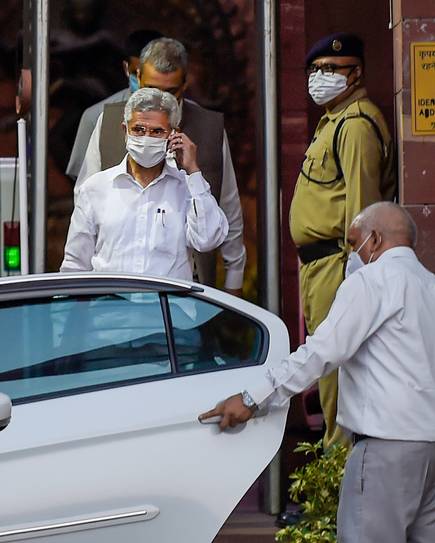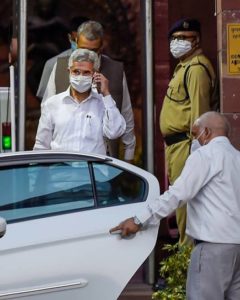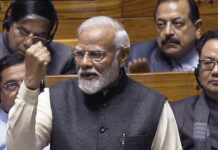

India and China on Wednesday agreed not to escalate matters along the Line of Actual Control (LAC) after a conversation was held between External Affairs Minister S. Jaishankar and Chinese Foreign Minister Wang Yi.
However there still remains a stark difference in how both sides described the unprecedented events of June 15, and the clash that claimed the lives of at least 20 Indian soldiers in the worst violence along the border since 1967.
After the call was concluded, it was agreed that both sides would deal with the situation in a “responsible manner” and “neither side would take any action to escalate matters and instead, ensure peace and tranquillity as per bilateral agreements and protocols,” the Ministry of External Affairs (MEA) quoted Mr. Jaishankar as saying.
A statement issued by China’s Ministry of Foreign Affairs (MFA) in Beijing said both sides agreed “to cool down the situation”. “The two sides agreed to deal fairly with the serious events caused by the conflict in the Galwan Valley, jointly abide by the consensus reached at the military-level meetings of the two sides, cool down the situation on the ground as soon as possible, and maintain peace and tranquillity in the border areas in accordance with the agreement reached so far between the two countries,” said the statement.
The Indian Minister said Chinese forces carried on with building activities in the Indian side of the LAC in violation of the agreement reached at the Corps Commander talks on June 6, and attacked Indian soldiers in a planned manner. He told Mr. Wang the Chinese forces went back on a commitment despite continuing dialogue throughout last week.
“The Chinese side sought to erect a structure in Galwan Valley on our side of the LAC,” he said. “While this became a source of dispute, the Chinese side took pre-meditated and planned action that was directly responsible for the resulting violence and casualties.”
In Beijing, the Chinese Foreign Minister accused India of “deliberately provoking” the clash and “openly breaking the consensus” of June 6.
“Once the situation in the Galwan Valley had calmed down, the Indian front-line troops crossed the LAC again, and deliberately provoked and violently attacked the officers and soldiers who negotiated on the spot, leading to fierce physical clashes, resulting in casualties. This dangerous act of the Indian Army seriously violated the agreement reached between the two countries on the border issue and seriously violated the basic norms of international relations,” he said.











